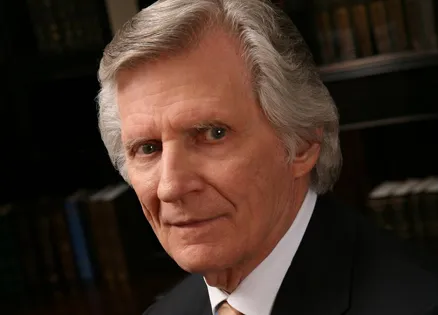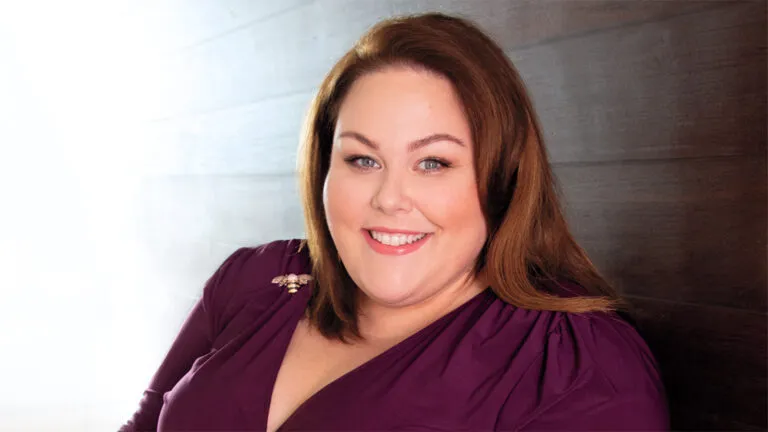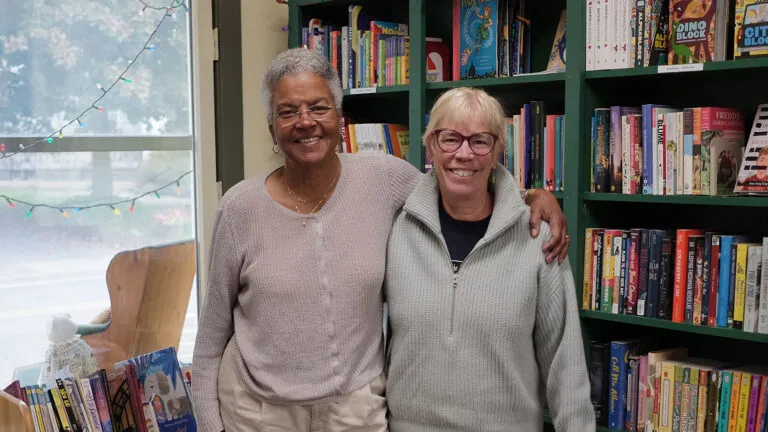The Christian community was saddened this week when it learned that David Wilkerson, evangelist, author of The Cross and the Switchblade, and founder and pastor of the Times Square Church in New York City, died. Here’s a story he wrote for Guideposts magazine in 1961.
Whenever I talk about two strange events, someone usually comments. “That’s very hard to believe.”
They are hard to believe. Yet I myself saw them take place, one on a street corner, the other in a prize fight hall: two rather unlikely places for conversion. But maybe that’s the very point of these stories: that when the Holy Spirit begins to work on your heart, it doesn’t matter where you are or what you’ve done or any of the other externals of the situation; something pretty nearly unbelievable takes place.
Almost five years ago, after a series of strange “coincidences” brought me to New York City to work with teen-age street gangs, I was invited to lead a city-wide revival aimed at teen-agers. Fifty churches raised over $4,000 and rented a prize fight hall, St. Nicholas Arena, for two weeks. The funds were supplied by the churches; all I had to do was supply the teen-agers.
Now I have always been a little suspicious of people who are “guided” into positions where they attract attention to themselves; and I was suspicious of myself. “Lord,” I said, “I don’t want to stay in New York five minutes unless it’s Your idea, not mine. I’m going to contact the leaders of the roughest gang in the roughest section of all New York. If they respond, I’ll know it’s You at work and not me.”
Talking to police, I found that two gangs qualified as toughest, the “Chaplains” and the “Mau Maus,” both in the Fort Green section of the city. The Chaplains had recently declared war on the police department: one method of fighting was to drop sandbags on passing officers from a rooftop. The leader of the Chaplains, I learned, was a boy called Buckboard. Buckboard had a vice-president named Stagecoach. The name of the Mau Maus’ leader was Israel; his vice-president, Nicky.
I set out for Fort Green looking for Israel and Buckboard. My only weapon was a trumpet—blown by a friend. We parked in front of P.S. #27 where members of the Chaplains and Mau Maus went to school. I began my ministry that afternoon by the simple technique of telling my friend the bugler to blow Onward Christian Soldiers.
Two hundred teen-agers swarmed to the corner where we stood. They yelled, whistled, threw obscenities and catcalls. How was I going to get them quiet long enough to talk to them? I tried the most direct technique I knew: prayer. I climbed up on a box so that everyone could see me, lowered my head, closed my eyes and prayed. My heart ached for these boys and I could not stop the tears from rolling down my face. Soon there was silence and I began to talk.
I preached a simple sermon that afternoon, using as my text, For God so loved the world . . .* When I finished I stepped down from the box, wondering what to do next.
No one in the crowd moved.
“I would like to meet some of your leaders,” I said. Silence.
I waited a moment and then went on: “What’s the matter? Are you afraid to shake hands with a skinny preacher?”
From the edge of the crowd, someone shouted: “Yeah. What’s the matter Buckboard, you chicken?”
Two figures separated themselves from the group. They wore dark glasses, long hair with duck-tail cuts, tapered trousers, continental shoes. They carried canes.
“I’m Buckboard,” one of them said. “I’m president of the Chaplains and this is my vice-president, Stagecoach. Slip a skin, Preacher.”
I had never heard this expression. When I held out my hand, he didn’t grasp it, but slid his palm along mine. Then I slipped a skin with Stagecoach. After that I spoke to them quietly for perhaps five minutes. To this day I do not know exactly what I said. I am quite positive I myself could never have “reached” these boys. It was as if I, Dave Wilkerson, were not speaking at all, but were being spoken through.
And then this nearly incredible thing happened. While I talked, Buckboard became emotionally distressed. Tears welled into his eyes. He dropped to his knees in front of the bystanders. Stagecoach looked at him in amazement—though I am sure he was no more amazed than I—and then he became distraught also.
“You’re coming through, Preacher,” Buckboard said, oblivious to the snickers around him. “Keep talking.”
I did keep talking. I talked about the power of Christ to end hatred.
Then I said, “Now I’d like to meet the president of the Mau Maus.”
Buckboard raised his head long enough to point out a boy standing on the edge of the crowd. “That’s him—Israel.”
“Slip a skin, Israel,” I said.
Israel hesitated but the crowd egged him on. Slowly he and his vice-president, Nicky, moved forward. We separated the four boys from the crowd, walking them over to our car for more privacy. There all but Nicky began to cry openly, and as the teen-agers looked on from a distance in open-mouthed disbelief three of the four boys dropped to their knees and asked for prayer. I blinked hard wondering if it could be real.
Then I turned to Nicky. The boy only stared at me sullenly. Then he spat on my shoes. “Keep away from me, Preacher, you’re not going to make me cry.”
God did not reach Nicky—not then. I did, however, get a promise from Buckboard and Israel to bring their gangs to the St. Nicholas Arena for the revival the following week.
They came with their thumbs hooked in their pockets, cigarettes hanging from the corners of their mouths, some swinging switch blades. They took seats toward the front. Just as I stood up to speak, Nicky walked down the aisle and took a seat with his gang in the forward rows. He slouched low in the chair and blew a smoke ring into the air. I looked down into his face and saw nothing but hostility. When I started to speak my words sounded hollow. Catcalls interrupted me and cries of: “Let’s have action!”
After several attempts at speaking, I stopped. I folded my hands in front of me, as I had on the street corner, and I simply stood still and prayed. I prayed silently for five minutes, a long time in front of restless teen-agers. But as I prayed the calls for “Action!” died away and St. Nicholas Arena became unimaginably quiet. When I finally spoke again, all I said was a simple, “Come.” Not in a loud voice — just “Come forward now.”
And then Israel was rising from his seat. He turned to his companions. “All right, you guys,” he was saying, “on your feet.”
His friends rose. “You followed me everywhere before, didn’t you?” Israel said. Nods. “Then follow me now. I’m going up there.”
Without waiting, Israel turned and walked to where I stood. “Preach, I want to know this Christ you talk about.”
If it hadn’t been for the tears in Israel’s eyes, I would have thought it was a joke. But tears are a sign that the Holy Spirit is at work. One by one every boy in Israel’s gang rose and walked forward — including Nicky.
That night I gave each of these new fledgling Christians a Bible. I tried to give them pocket size New Testaments but they wanted big Bibles, the kind you carried in your hand and everyone saw.
I could hardly sleep that night for wondering what was to happen next. A phone call woke me early: it was a police lieutenant.
“What have you done with these boys?” the officer wanted to know. “For years they’ve run at the very sight of a policeman. You come along and after a few days they’re knocking on our door. Know what they want? They want us to autograph their Bibles!”
This was the beginning of a new life for these boys and a new ministry for me. A few days after the revival a group of ministers invited me to come to the city as their full-time gang preacher. I accepted, and today I am director of “Teen Challenge,” the organization formed to back this work.
The hardest part of my ministry now, as at the beginning, is to believe what I see with my own eyes. Could they be real—these lightning conversions? Will they last? These are not easy questions to answer.
When a boy is converted we take him to his local church where the never-ending process of Christian growth really begins. Eighteen months after their conversions I met Buckboard and Stagecoach and Israel again in Fort Green. They were each wearing a freshly pressed Army uniform. Very proud. Very straight.
And Nicky—the boy who had spat on my shoes when I talked to him?
This week, his schooling over, Nicky Cruz is coming back to New York with a license to preach, and a new bride. It’s hard to tell which he is more excited about. He’s joining me, full time, in this evangelistic work with troubled or simply lonesome kids at our Teen Challenge Center in Brooklyn. He will be working with the same tools I used: a trumpet and a willingness. A trumpet to get someone to listen, and a willingness to let the Holy Spirit do the talking.
Read more about the inspiring story of how David Wilkerson found his spiritual calling in New York City.
Download your FREE ebook, Mysterious Ways: 9 Inspiring Stories that Show Evidence of God’s Love and God’s Grace




